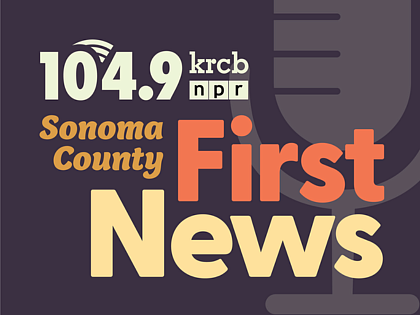Local rules passed over two decades ago were meant to protect Healdsburg from overdevelopment. But now they are seen as making housing problems worse.
 photo credit: courtesy googlemaps streetview
photo credit: courtesy googlemaps streetviewThe Mill District development could be one of many
Later this year, Healdsburg may ask voters to roll back or scrap the city's growth management ordinance, referred to by the acronym GMO.
In lengthy deliberations this week, officials attributed some of the city's housing scarcity and extreme prices to the measure, approved at the end of the 1990s housing boom.
While the city is satisfied with its efforts on affordable housing, and may pursue creation of a land trust, there's a consensus that more must be done to deliver market rate rental housing.
Officials are looking to float options to make that happen, possibly lifting the ordinance, but only in certain parts of town.
"These areas largely are centered along Healdsburg Avenue and they are predominantly in commercial corridors, so they would have minimal impact existing established neighborhoods and residential areas," said Scott Duiven Healdsburg's community development director.
"The second option would be to look at removing the income restriction for the middle income rental-- just make those market rate, but also subject to the inclusionary housing. The impact of that would be that we could potentially see some actual, market-rate multi-family housing built in Healdsburg, which has not happened since the Growth Management Ordinance was adopted in 2000, so 24 years ago, there has not been a single project with five or more units, in terms of market-rate rentals," Duiven said.
The city has hired a consulting group to conduct a poll on the subject.
Councilmember Ariel Kelley told the council that the growth ordinance's complexity may make voters wary of changing it.
"A lot of newcomers have no idea that we even have a GMO, or what it actually means. I don't think that the general community is aware of the ramifications or the unintended consequences of the GMO," Kelley sad.
Mayor David Hagele said convincing voters to make major alterations by November could prove a heavy lift.
"It's usually true that with any ballot measure, if voters are uncertain, if they are confused, if they doubt that they have a clear understanding of what the consequences of a yes vote will be, they'll tend to default to a no vote," Hagele said.
Healdsburg Housing Director Stephen Sotomayor said when proposals for more housing do come up, reservations from residents emerge.
"There have been a lot of questions raised by the community---everything from, where's the water coming from, concerns about height, what about parking? What about traffic? What about the infrastructure? Will it cater to the wealthy? Will it be second homes and not for locals , defining affordable housing and middle income, they are very good questions and they are very legitimate questions that community members have," Sotomayor said.
The city council has indicated plans to put some kind of modification of the Growth Management Ordinance on the November ballot.

 Live Radio
Live Radio




